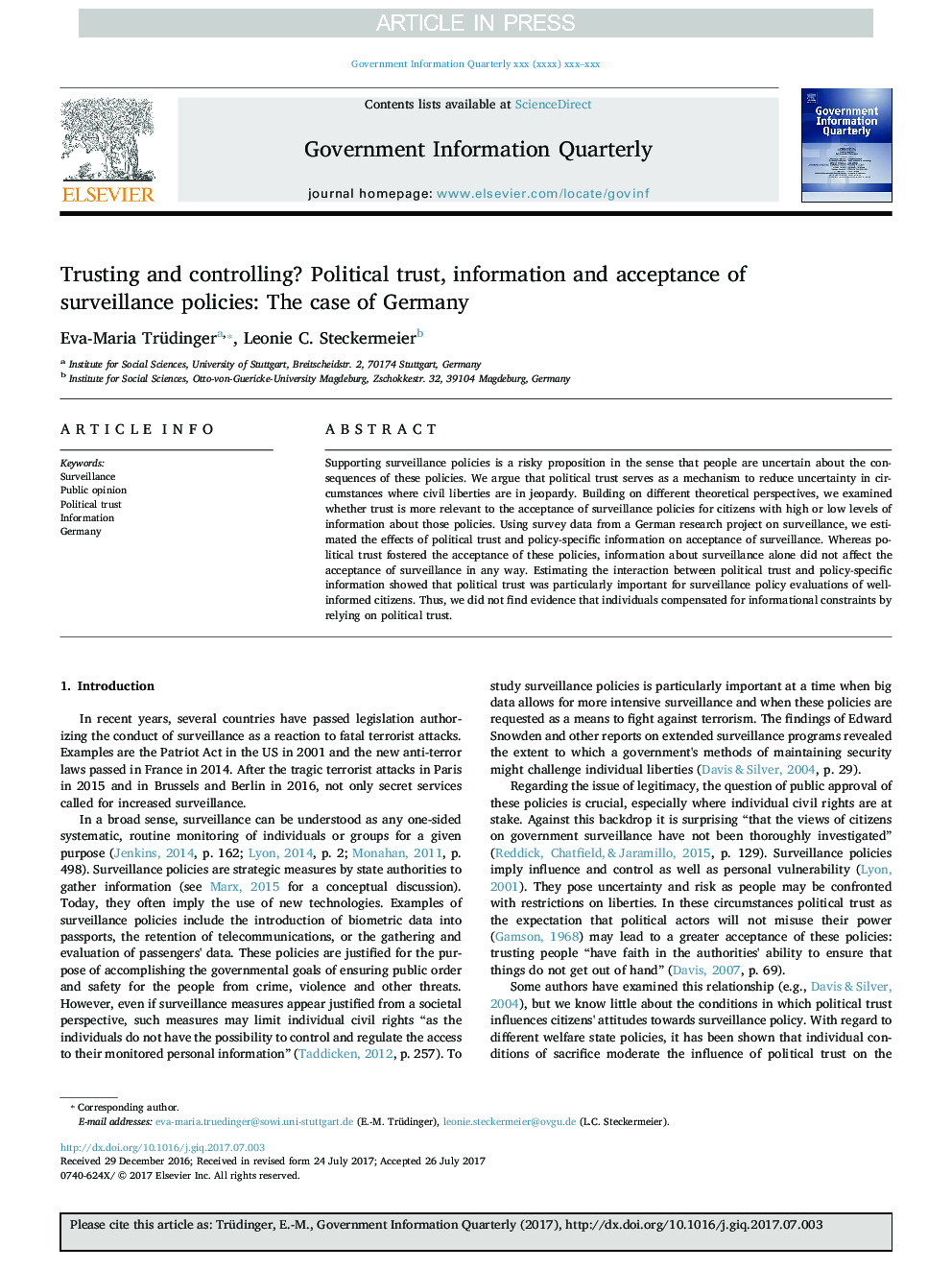| Article ID | Journal | Published Year | Pages | File Type |
|---|---|---|---|---|
| 7428624 | Government Information Quarterly | 2017 | 13 Pages |
Abstract
Supporting surveillance policies is a risky proposition in the sense that people are uncertain about the consequences of these policies. We argue that political trust serves as a mechanism to reduce uncertainty in circumstances where civil liberties are in jeopardy. Building on different theoretical perspectives, we examined whether trust is more relevant to the acceptance of surveillance policies for citizens with high or low levels of information about those policies. Using survey data from a German research project on surveillance, we estimated the effects of political trust and policy-specific information on acceptance of surveillance. Whereas political trust fostered the acceptance of these policies, information about surveillance alone did not affect the acceptance of surveillance in any way. Estimating the interaction between political trust and policy-specific information showed that political trust was particularly important for surveillance policy evaluations of well-informed citizens. Thus, we did not find evidence that individuals compensated for informational constraints by relying on political trust.
Related Topics
Social Sciences and Humanities
Business, Management and Accounting
Business, Management and Accounting (General)
Authors
Eva-Maria Trüdinger, Leonie C. Steckermeier,
